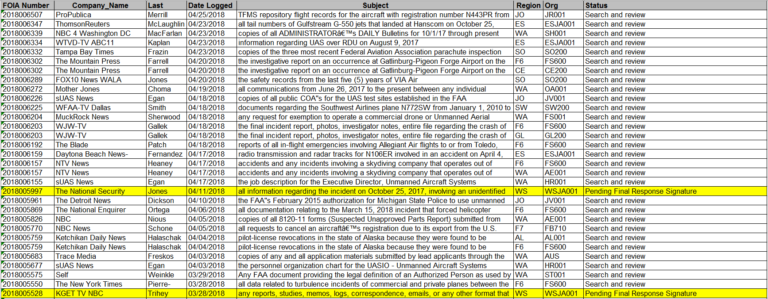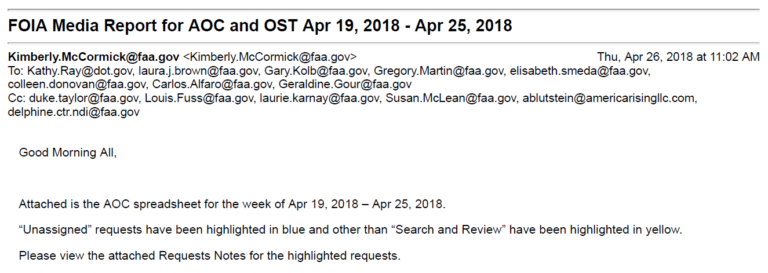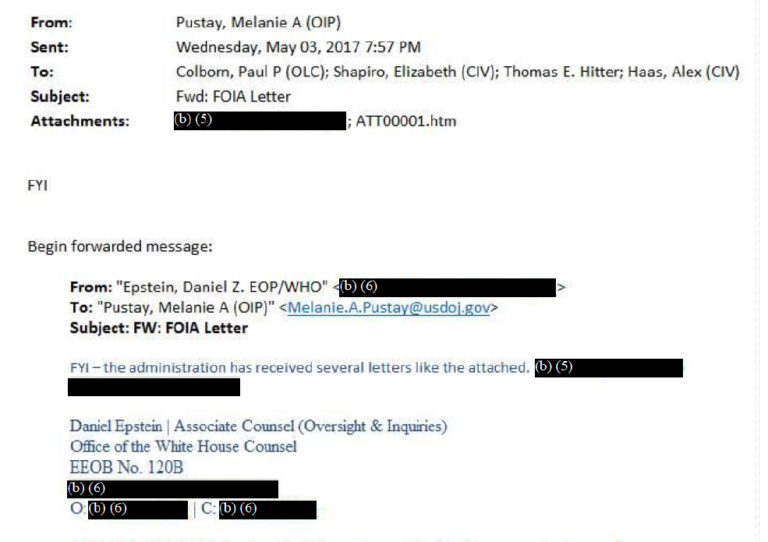President Trump’s phone and email behavior are coming under scrutiny for security reasons, but regardless of the device used, the type of email account being used could be a bigger concern. Did you know that a government official’s use of private email to conduct government business is wrong? If the Hillary Clinton email scandal didn’t showcase that, consider one of our recent and ongoing investigations into former Secretary of State Colin Powell’s work-related email records, which were hosted on a personal AOL account.
In September 2016, the House Oversight & Government Reform Committee held a hearing at which then-Under Secretary of State Patrick Kennedy testified that the State Department had undertaken minimal efforts to retrieve Powell’s work-related email. In October 2016, Cause of Action Institute sought access to Secretary Powell’s work-related emails under the Freedom of Information Act (“FOIA”). At the same time, we advised the Secretary of State and the Archivist of the United States of their obligations under the Federal Records Act (“FRA”) to recover those same email records. Once it became apparent that the State Department would not respond to our FOIA request, and the obligation to initiate action through the Attorney General for the recovery of Secretary Powell’s work-related email would not be met, we filed suit in federal district court. In January 2018, when the court denied the government’s first motion to dismiss, it described the State Department’s efforts at recovery as “anemic.” As we’ve noted, U.S. District Court Judge Trevor McFadden explained that “[t]he Defendants’ refusal to turn to the law enforcement authority of the Attorney General is particularly striking in the context of a statute with explicitly mandatory language.” “[T]here is a substantial likelihood that [CoA Institute’s] requested relief would yield access to at least some of the emails at issue.”
After being repeatedly asked by the National Archives and Records Administration (“NARA”) to contact AOL directly for Powell’s emails, the State Department never did so until CoA Institute filed its lawsuit. But the State Department continues to use the line that the emails have been “fatally lost” and that our lawsuit should therefore be dismissed. The Defendants argue that, even if they cannot prove fatal loss or completely recover unlawfully removed records, their obligation to initiate action through the Attorney General (and thus marshal the law enforcement authority of the federal government) can be excused if they have no “reason to believe” records are recoverable.
We’re currently pushing back on that argument, as it rests on a fundamental misapprehension of the FRA. We have asked the court to order the Secretary of State and the U.S. Archivist to initiate action through the Attorney General for the recovery of Powell’s email, as required by law. This would entail enlisting the law enforcement authority of the federal government to investigate the possibility of forensically recovering the records at issue, among other things. Such techniques have been successful in previous cases of unlawfully removed federal records, as evidenced by Hillary Clinton’s email scandal and the FBI’s recovery of Peter Strzok and Lisa Page’s text messages.
The problem with the Defendants’ position is that it ignores the clear text of the FRA and thirty years of precedent, which recognizes a non-discretionary obligation for an agency head to go to the Attorney General whenever its own recovery efforts have failed. In this last line of their closing brief, the Defendants sum up their argument: “We recognize that the Court has previously rejected the contention that the FRA requires referral only when an agency has reason to believe that records can be recovered but respectfully reserve the right to seek further review should the Solicitor General determine that such review is warranted.”
This case illustrates how careless the federal government can be with the protection of government work – the use of a personal account and the subsequent years-long legal battle to recover Secretary Powell’s work-related emails are a failure of our government to follow both the FRA and the FOIA. Secretary Powell should never have used a personal email account, and the State Department should have acted quicker to recover and preserve vital records of government business that were stored on a third-party commercial server. If it is this difficult to recover materials that ultimately belong to the American people, the work of the government becomes more and more opaque and the gap between the American people’s knowledge and the federal government’s behavior only widens.
Mary Beth Gombita, Cause of Action Institute.



